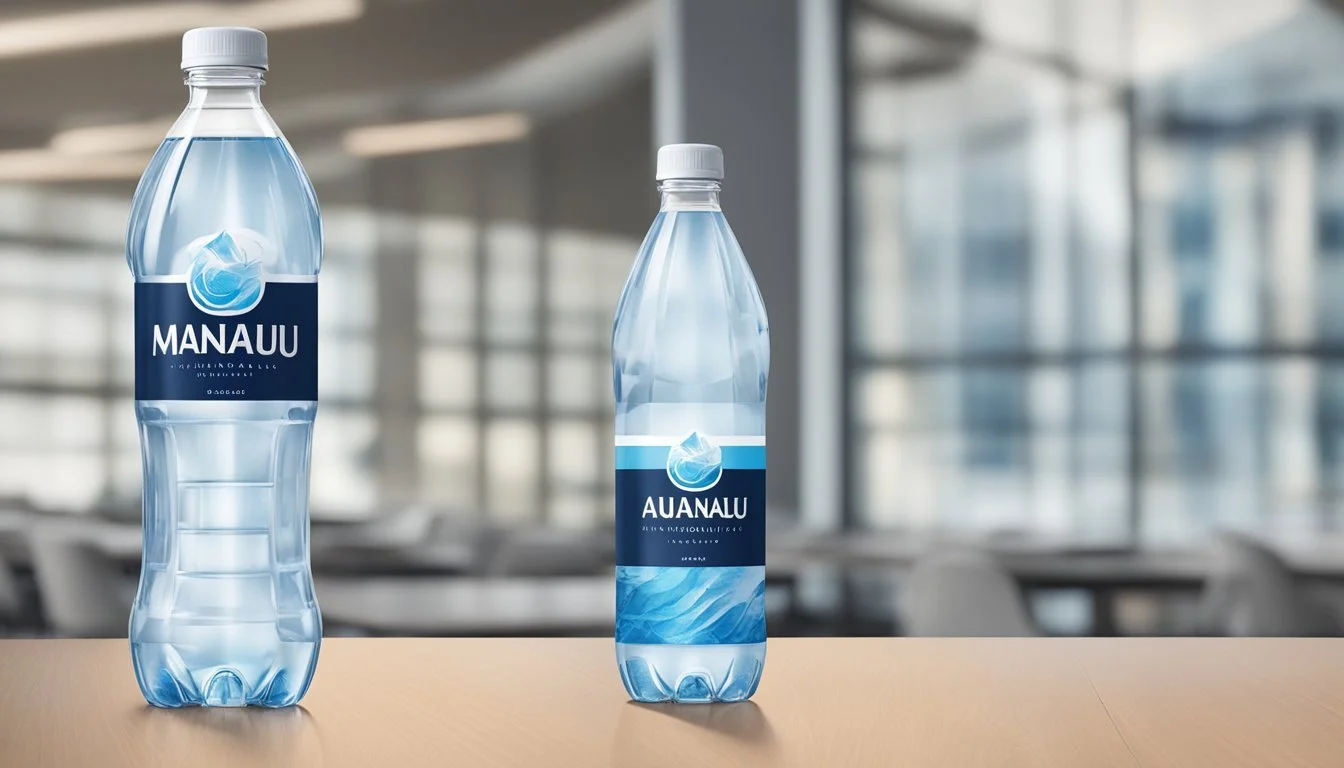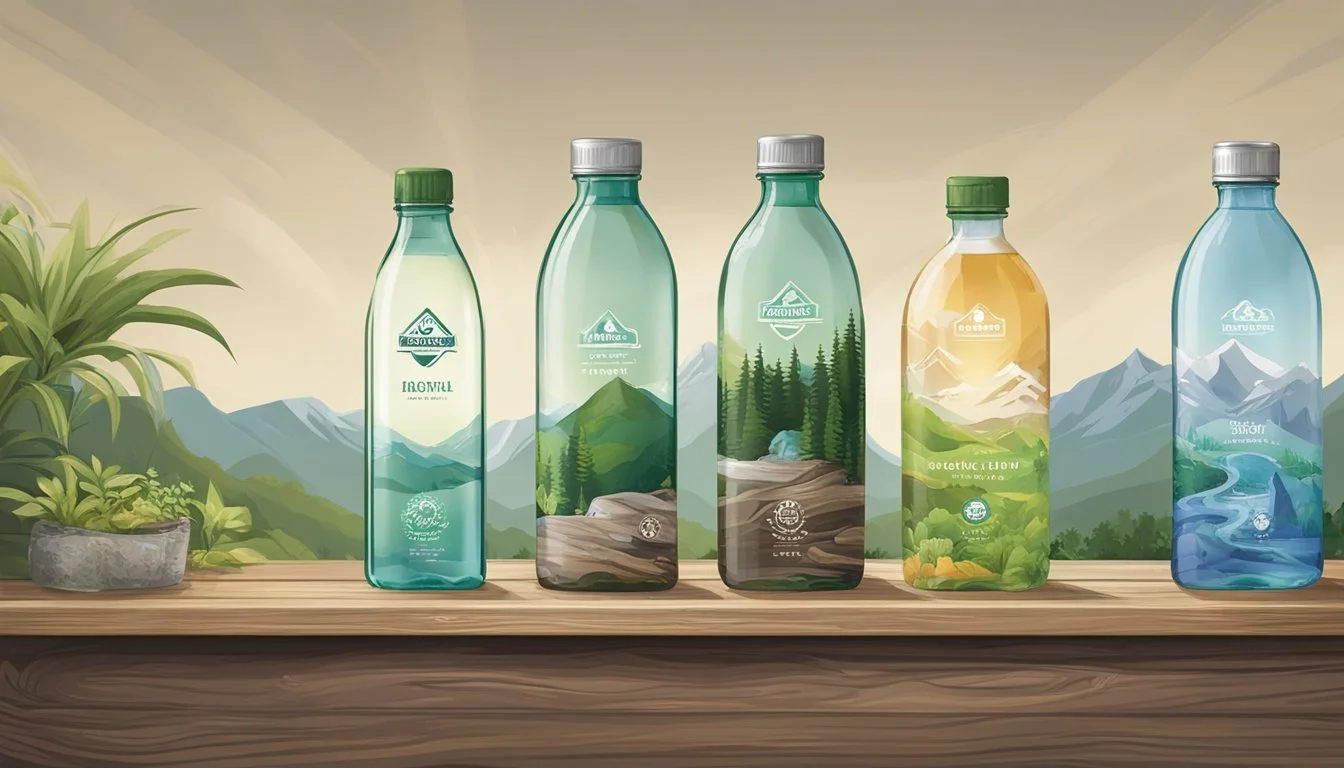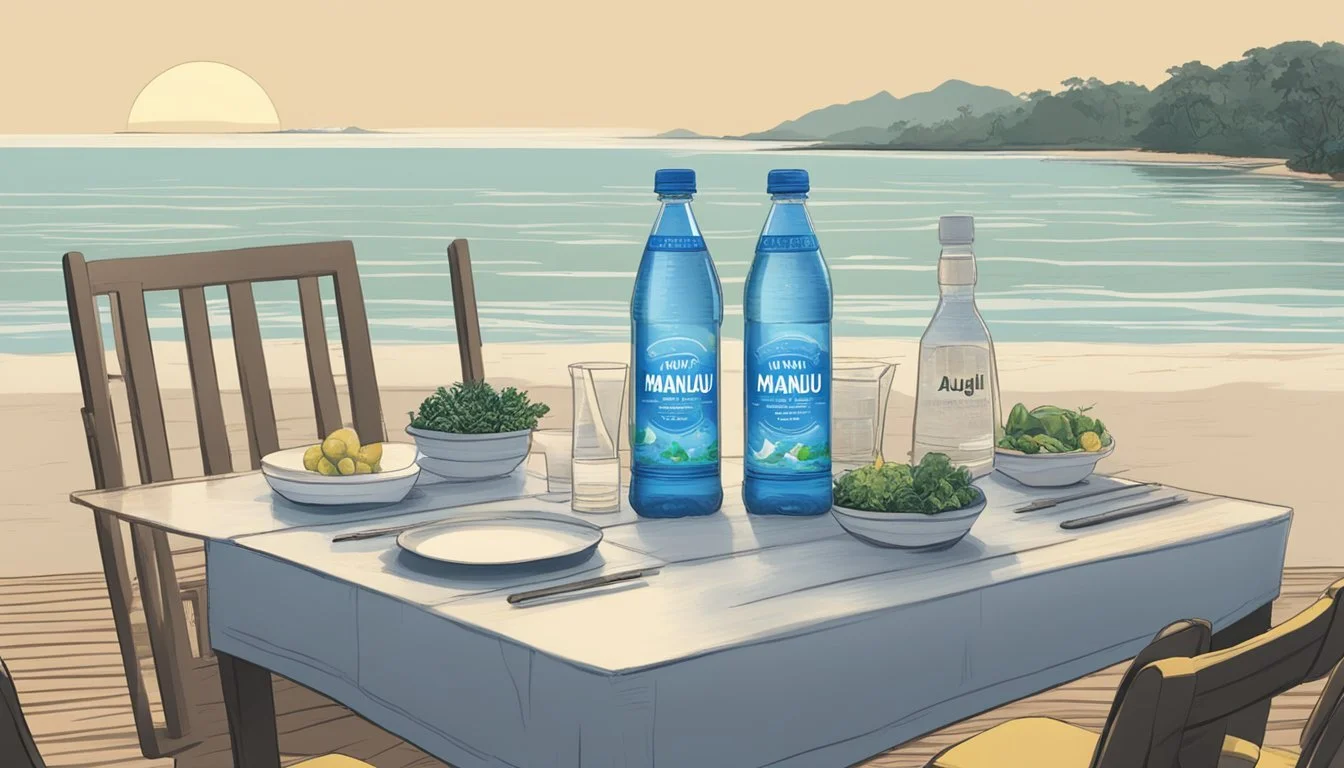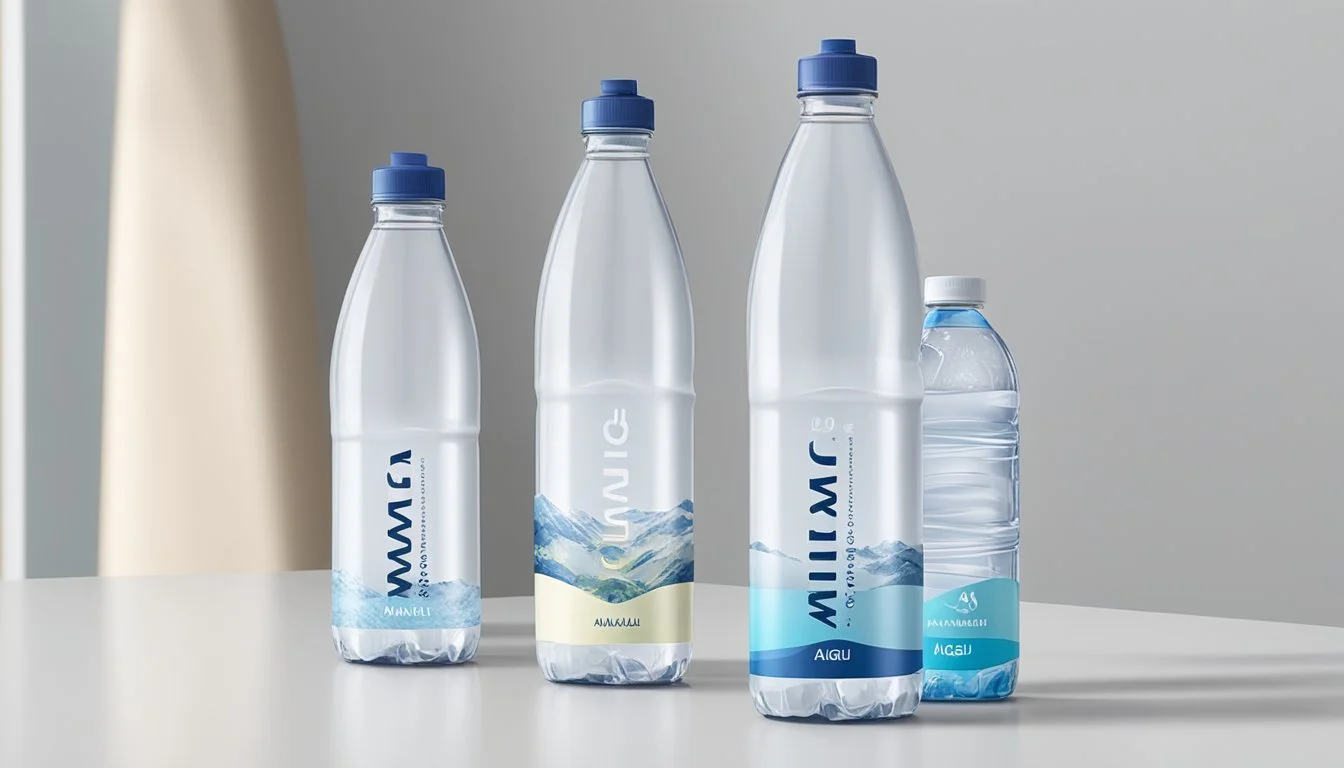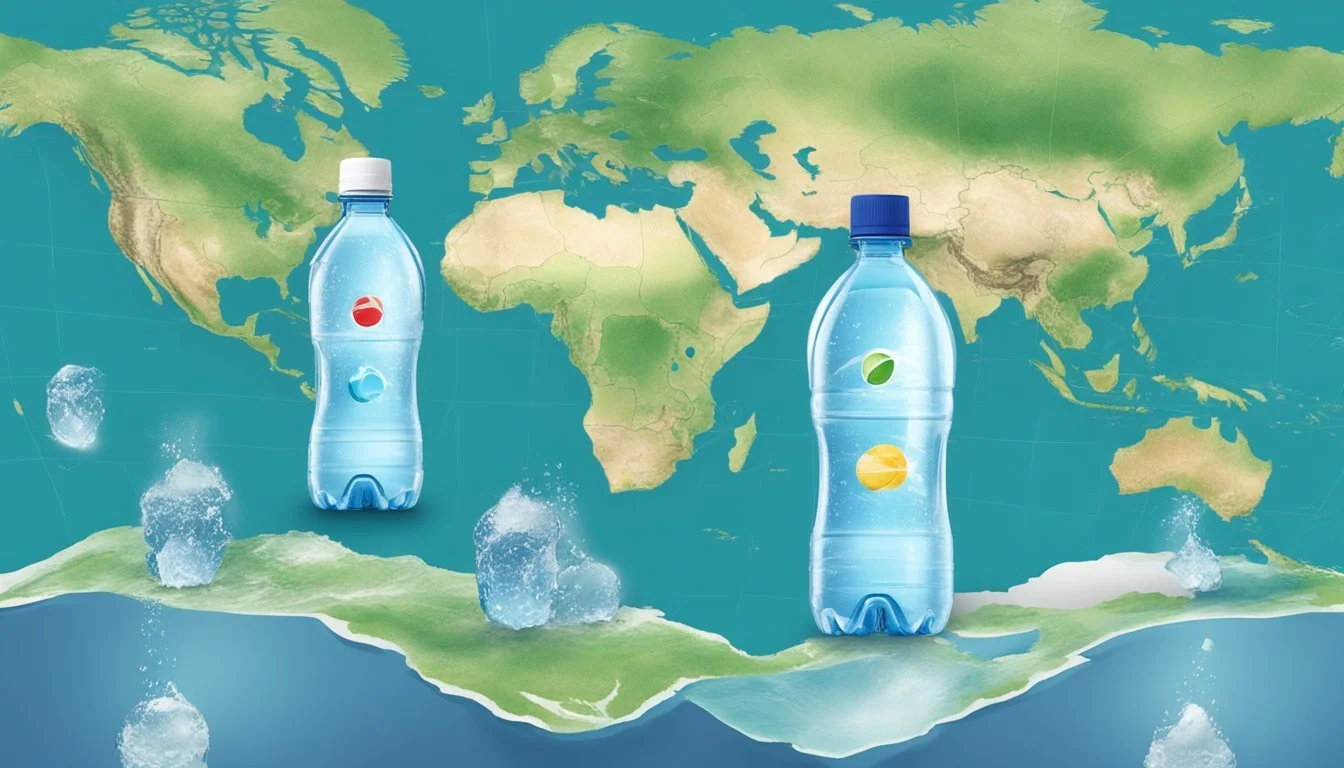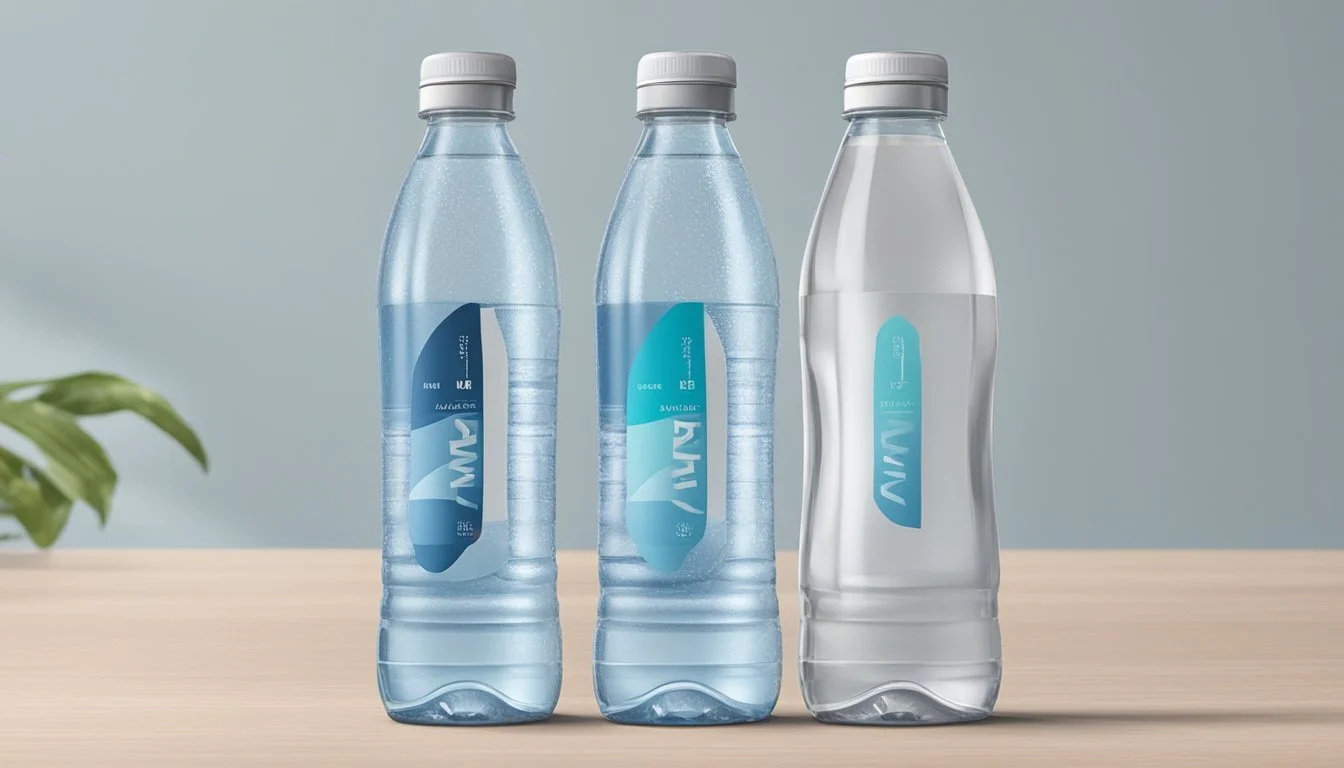Mananalu vs. Augi
An Expert Comparison of Bottled Water Brands
Choosing the right bottled water can be a challenge with so many options available. Mananalu, founded by actor Jason Momoa, offers purified water in 100% recyclable aluminum cans, promoting sustainability and a reduction in single-use plastics. Augi, on the other hand, is a purified water sourced from Leesburg, Va., with a unique taste profile that may slightly impact its appeal.
Mananalu's commitment to the environment makes it a strong contender for eco-conscious consumers looking to minimize their environmental footprint. Augi, with its slightly sulfuric taste, provides an alternative for those who appreciate a distinct flavor, although this may not appeal to everyone.
For those prioritizing sustainability, Mananalu's aluminum packaging is a significant advantage. In contrast, Augi's unique taste might be a selling point for those seeking a different water experience.
The Founding Mission and Vision
Mananalu and Augi both aim to revolutionize the bottled water industry, each with a distinct mission inspired by unique principles.
Mananalu's Ambition
Mananalu, founded by actor and ocean activist Jason Momoa, seeks to combat plastic pollution. The brand's core vision is to eliminate single-use plastic water bottles by offering purified water in 100% recyclable aluminum cans. The name "Mananalu" combines the Hawaiian words "mana," meaning sacred spirit of life, and "nalu," meaning a powerful wave. This name encapsulates the company's purpose: to be a catalyst for change.
The company's initiatives include the Drink One, Remove One program, where for every bottle purchased, a plastic bottle is removed from the ocean and coastline through partnerships with organizations like Repurpose Global. Additionally, Mananalu is dedicated to being Climate Neutral and Plastic Negative, reducing its carbon footprint and offsetting its plastic usage through various environmental projects.
Augi's Principles
Augi's commitment aligns with a broader sustainability mission aimed at improving global health and well-being. Augi's principles emphasize clean water access and sustainable practices. While specific founders are less publicized, the brand is marketed with a focus on ethical sourcing and environmental stewardship.
Augi aims to support local communities by investing in projects that ensure clean and safe drinking water. Their approach includes collaborating with global initiatives like 1% for the Planet, contributing a portion of profits to environmental causes. Augi’s packaging strategies prioritize materials that are not only recyclable but also biodegradable, aiming for a fully closed-loop system.
Both brands, while distinct in their founding motivations, emphasize sustainability and a commitment to reducing plastic waste. Their efforts highlight the evolving consumer demand for environmentally responsible products.
Environmental Impact and Sustainability
Mananalu and Augi, two bottled water brands, have distinct approaches to combatting environmental challenges. Key differences lie in their materials, recycling practices, and overall sustainability efforts.
Single-Use Plastic and Alternatives
Single-use plastics contribute significantly to environmental pollution. Mananalu addresses this by packaging its water in aluminum bottles, a material that's infinitely recyclable. Each purchase of Mananalu helps remove ocean-bound plastic waste through their partnership with rePurpose Global.
Augi, on the other hand, focuses on reducing plastic use but still relies on plastic containers. While they use recycled plastic for their bottles, this solution has limitations. Recycling rates for plastic remain low, and repeated recycling eventually degrades plastic quality.
Choosing aluminum over plastic offers more sustainability because aluminum can be recycled repeatedly without losing integrity. This makes aluminum a more sustainable option in reducing single-use plastics and their environmental impact.
Aluminum vs Plastic Bottles
Aluminum bottles have a significantly lower carbon footprint over their lifecycle compared to plastic bottles. They are also more durable and can be resealable, which adds to their reusability. Aluminum's strength and light weight make it practical for transport, reducing emissions further.
Plastic bottles, despite their widespread use, have several drawbacks. They often end up as plastic pollution, contributing to ocean plastic pollution. While plastic bags and plastic containers are recyclable to some extent, the process is less efficient and more energy-consuming compared to aluminum.
The choice of material is crucial. Aluminum bottles offer a durable, recyclable alternative that can help mitigate the effects of plastic waste on the environment. The aluminum-bottled water approach by Mananalu exemplifies their commitment to this cause.
Recycling and Reusability
Recycling practices play a pivotal role in sustainability. Aluminum is one of the most recyclable materials, and it can be recycled indefinitely. The process of recycling aluminum requires only 5% of the energy needed to produce new aluminum, making it highly efficient and environmentally friendly.
Plastic recycling, however, is less efficient. Many plastic products, including plastic bottles, cannot be recycled indefinitely as plastic degrades each time it is recycled. This leads to more plastic waste and an increased demand for new plastic production. Even recycled plastic has a limited lifespan and ultimately contributes to environmental degradation.
Adopting recycled aluminum and reusable bottle designs, like those promoted by Mananalu, significantly aids in reducing the demand for single-use plastics and enhancing the reusability of water containers. This shift towards sustainable materials and practices is essential for minimizing the environmental footprint of bottled water.
Product Offerings and Features
Mananalu and Augi offer distinct products based on their sources, purity, variety, flavors, and packaging designs. Understanding these differences can help consumers make an informed choice.
Water Source and Purity
Mananalu sources its water from some of the purest springs in Hawaii, ensuring a naturally pure taste. The water is processed to maintain high-quality standards and retains natural minerals and electrolytes. Augi also prides itself on using pristine water sources, ensuring a high level of purity comparable to Mananalu's standards.
Both brands emphasize the importance of maintaining the natural integrity of their water, but Mananalu may have a slight edge with its Hawaiian source, which is known for its exceptional quality and purity.
Variety and Flavors
Mananalu offers a range of flavors including Tahitian Lime and Lilikoi Passion, which cater to those who prefer a bit of zest in their hydration. Augi, on the other hand, primarily focuses on offering unflavored water, positioning itself more towards purists who prefer the natural taste of water without additives.
While Mananalu's flavored offerings are a significant feature, Augi’s commitment to pure, unaltered water may appeal more to customers who value simplicity.
Packaging Design
A key differentiator for Mananalu is its use of infinitely recyclable aluminum cans. The aluminum-bottled approach helps eliminate single-use plastic bottles, aligning with environmental sustainability goals. The branded designs, including the limited-edition "Aquaman and the Lost Kingdom" bottles, add a touch of personalized aesthetics.
Augi’s packaging, while also recyclable, predominantly consists of traditional plastic bottles. While convenient, this choice may be less appealing to environmentally conscious consumers.
Mananalu's commitment to sustainable, attractive aluminum-bottled designs may resonate more with those seeking eco-friendly packaging solutions.
Taste Profile and Consumer Experience
Both Mananalu and Augi offer distinctive taste profiles and consumer experiences, influenced by their sourcing and packaging methods.
Comparative Taste Analysis
Mananalu provides a crisp, clean taste, partly due to its aluminum packaging. The use of such cans helps to maintain its purity, preventing any contamination often associated with plastic. Many consumers note a refreshing quality, free from any metallic aftertaste.
Augi, sourced from the Leesburg, Va., municipal water supply, has a unique flavor that has intrigued many. Some tasters perceive a slight sulfuric note, which borders on a fishy taste. This characteristic flavor can be polarizing.
Taste Mananalu Augi Clean and Crisp ✅ ❌ Slight Sulfuric Note ❌ ✅ Fishy Undertones ❌ ✅
Such differences highlight the subjective nature of taste in bottled water.
Water Sommelier Insights
Water sommeliers often compare bottled water brands based on their mineral content and sources. Mananalu is praised for its pure taste and commitment to sustainability, packaged in recyclable aluminum. This not only preserves the taste but also aligns with current environmental preferences.
Augi's unique taste can draw mixed reviews from water sommeliers. While it may not compete with high-end brands like Acqua Panna or Fiji, it differentiates itself with its distinctive mineral profile. The slight sulfuric notes are noted, which some sommeliers might appreciate for their uniqueness.
In comparison to Evian, Arrowhead, Flow, and Icelandic Glacial, both Mananalu and Augi offer unique experiences, demonstrating how varied and subjective water tasting can be.
Market Presence and Accessibility
Mananalu and Augi take different approaches to market presence and accessibility. Understanding where and how you can purchase these brands is essential for making an informed decision.
Retail Distribution
Mananalu is widely available in over 380 Sprouts locations across the United States and can also be found at major grocery retailers like Whole Foods, Safeway, and Foodland. This extensive physical presence makes it easy for consumers to find it in various regions. Furthermore, Mananalu has a strong promotional presence in stores, utilizing features like Sprouts' Innovation Table and "Find a New Favorite" initiative to attract eco-conscious shoppers.
Augi, on the other hand, has a more selective retail distribution strategy. While it may not have as broad a physical presence as Mananalu, when it is available, it tends to be in premium grocery stores that focus on high-quality, ethically sourced products. This selective approach might mean fewer locations, but it ensures that the brand appeals to a targeted demographic.
Online Availability
Mananalu excels in online availability. It is sold through major online platforms such as Amazon, which offers the convenience of home delivery. Additionally, consumers can purchase from the Mananalu website directly, often benefiting from promotions such as free shipping. The ability to buy through multiple channels, including large e-commerce websites, significantly enhances accessibility for customers.
Augi also offers online purchasing options but focuses primarily on its official website for direct sales. While it might not have the same level of presence on massive e-commerce platforms like Amazon, it maintains accessibility through its streamlined website. This strategy allows Augi to control the customer experience and often provides opportunities for direct engagement with the brand.
Both brands ensure that customers can easily buy their products, whether through widespread retail distribution or accessible online platforms, catering to a diverse range of shopping preferences.
Corporate Collaborations and Endorsements
Mananalu and Augi have both established strategic alliances and attracted high-profile endorsements to advance their missions and enhance market presence.
Partnerships and Support
Mananalu has formed an exclusive alliance with Boomerang Water, transitioning into a B2B business model. This collaboration aims to expand their reach and amplify their environmentally sustainable initiatives. They partner with Hawaiian Airlines to replace single-use plastic water bottles on flights, aligning with their mission to reduce plastic waste.
Augi, on the other hand, focuses its efforts on partnerships emphasizing hydration and convenience. They have allied with several fitness centers and wellness retreats to provide easily accessible, healthy beverage options.
Celebrity Engagement
Mananalu benefits from the endorsement of Jason Momoa, its founder and a well-known actor from the movie "Aquaman." His significant social media presence, notably on Instagram, amplifies Mananalu's visibility. Momoa consistently advocates for the brand’s Drink One, Remove One initiative, promoting ocean conservation and sustainability.
Augi collaborates with fitness influencers and athletes who endorse the product through various campaigns. Their aim is to appeal to a health-conscious audience by highlighting the product's natural flavor and hydration benefits. This approach helps Augi gain credibility and trust within the fitness community.
Consumer Cost and Value
The battle between Mananalu and Augi hinges on both pricing and the quality you get for that price. Detailed below are the critical aspects of consumer cost and value for both brands.
Pricing Comparison
Mananalu positions itself in a higher premium segment. Mananalu's 12-pack can be found online for about $27.99, which translates to approximately 15 cents per ounce. This is significantly higher than mainstream brands like Dasani or Aquafina, which usually retail around $4-5 for a 24-pack, approximately 2 cents per ounce.
Augi, sourced from municipal water supplies, is generally more affordable compared to Mananalu. While exact prices vary, Augi's competitive edge lies in its retail pricing, often matching brands like Poland Spring and Lifewtr around 2-3 cents per ounce. This positions Augi as a budget-friendly option compared to the pricier Mananalu.
Quality vs. Cost
Mananalu aims to provide high quality and sustainability with its aluminum packaging, which offsets its higher cost. The purified water is both crisp and clean, appealing to environmentally conscious consumers willing to pay extra. Many feel the higher price is justified by the combination of taste and eco-friendly packaging.
On the other hand, Augi, drawing parallels with brands like Essentia and Smartwater, offers a purified option that appeals to a consumer base looking for value without a premium price tag. Despite its lower price point, some reviews point out its occasional aftertaste, which might deter some potential buyers. However, for those prioritizing cost over high-end packaging or taste refinement, Augi delivers commendable value.
Both brands have their merits, appealing to different segments of the bottled water market based on pricing and perceived quality.
Contribution to Global Challenges
Mananalu and Augi provide unique solutions to pressing environmental issues. This comparison highlights Mananalu's work on ocean pollution and climate change initiatives while noting Augi's specific contributions.
Combating Ocean Pollution
Mananalu tackles ocean plastic pollution through its aluminum-bottled water. Founded by Jason Momoa, the brand actively reduces single-use plastic waste. Each purchase removes plastic from ocean-bound waste in collaboration with rePurpose Global.
To date, Mananalu has removed the equivalent of 15 million plastic bottles from the oceans. Augi's efforts in this domain are less prominent. Though Augi promotes eco-friendly packaging, their impact on ocean waste reduction lacks the same measurable outcomes presented by Mananalu.
Climate Change Initiatives
Mananalu incorporates sustainable practices to combat climate change. Their use of recyclable aluminum bottles contributes to reduced greenhouse gas emissions compared to single-use plastics. Additionally, Mananalu partners with organizations to promote renewable energy and low-carbon operations.
Augi emphasizes carbon neutrality in their production processes. They have invested in renewable energy projects and carbon offset programs, striving to minimize their carbon footprint. Both companies make significant efforts towards climate sustainability, with differences primarily in execution and scale.
Final Comparison and Conclusion
Mananalu and Augi both focus on providing bottled water options with an emphasis on sustainability.
Mananalu proudly packages its water in 100% recyclable aluminum cans. This effort aims to reduce plastic waste significantly. Augi, on the other hand, also uses aluminum packaging, ensuring their product is infinitely recyclable as well.
In terms of environmental impact, both companies strive to minimize their carbon footprint. Aluminum cans, being easier to recycle repeatedly, help both brands stand out in this regard.
Taste is a significant factor in the bottled water market. Mananalu is noted for its clean, refreshing taste. Augi, similarly, provides a crisp and clear flavor, suitable for hydration and refreshment. Preferences may vary based on individual tastes.
Cost can influence consumer decisions. Mananalu and Augi are generally positioned in the premium segment of the bottled water market. Pricing can reflect the sustainable initiatives and high-quality packaging each brand runs.
Both brands highlight their commitment to sustainability and eco-friendly practices. This makes Mananalu and Augi appealing to environmentally conscious consumers.
Feature Mananalu Augi Packaging 100% Recyclable Aluminum 100% Recyclable Aluminum Environmental Impact High Focus on Sustainability High Focus on Sustainability Taste Clean and Refreshing Crisp and Clear Cost Premium Pricing Premium Pricing
The decision between Mananalu and Augi will depend on individual preferences for taste, price, and brand loyalty. Both provide excellent alternatives to traditional single-use plastic bottled water options.
More About Mananalu
Hawaiian Springs vs Mananalu: Which Bottled Water is Better?
Icelandic Glacial vs Mananalu: Which Bottled Water is Better?
Mananalu vs Cascade Mountain: Which Bottled Water is Better?
Mananalu vs Kirkland Signature: Which Bottled Water is Better?
Mananalu vs Richard's Rainwater: Which Bottled Water is Better?
Mananalu vs Talking Rain AQA: Which Bottled Water is Better?
Mananalu vs Whole Foods Italian Still Mineral water: Which Bottled Water is Better?
Mountain Valley Spring Water vs Mananalu: Which Bottled Water is Better?
Nestle Pure Life vs Mananalu: Which Bottled Water is Better?

